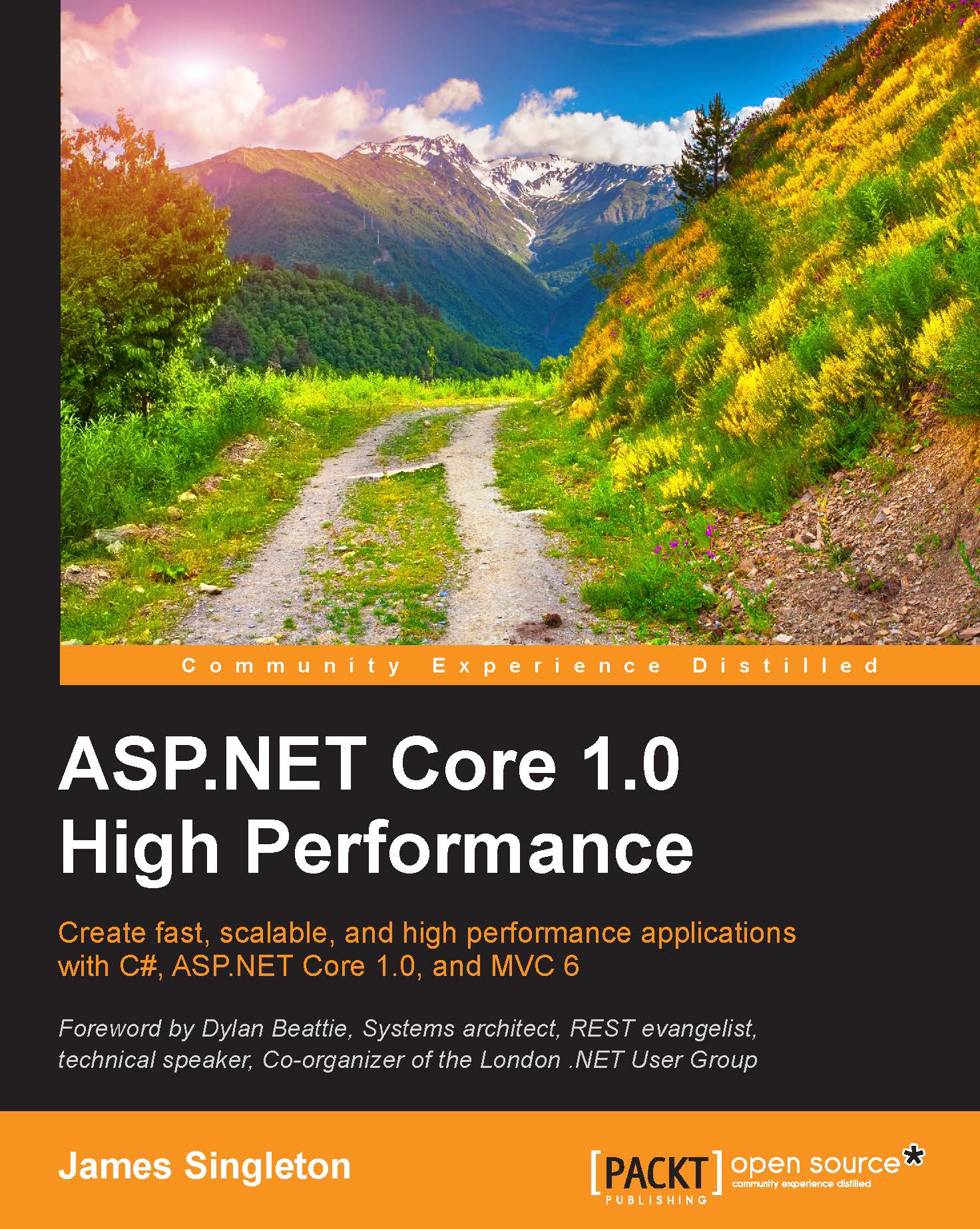Chapter 1. Why Performance Is a Feature
This is an exciting time to be a C# developer. Microsoft is in the middle of one of the biggest changes in its history, and it is embracing open source software. The ASP.NET and .NET frameworks are being rebuilt from the ground up to be componentized, cross-platform, and open source.
ASP.NET Core 1.0 and .NET Core 1.0 (previously called ASP.NET 5 and .NET Core 5) embrace many ideas from popular open source projects, such as Go's ability to produce a statically-linked, standalone binary. You can now compile a single native executable that is free of any external dependencies and run it on a system without .NET installed.
The ASP.NET Model View Controller (MVC) web application framework, which is now part of ASP.NET Core 1.0, borrows heavily from Ruby on Rails and Microsoft is keen in promoting tools, such as Node.js, Grunt, gulp, and Yeoman. There is also TypeScript, which is a statically-typed version of JavaScript that was developed at Microsoft.
By reading this book, you will learn how to write high-performance software using these new .NET Core technologies. You'll be able to make your web applications responsive to input and scalable to demand.
We'll focus on the latest Core versions of .NET. Yet, many of these techniques also apply to previous versions, and they will be useful for web application development in general (in any language or framework).
Understanding how all of these new frameworks and libraries fit together can be a bit confusing. We'll present the various available options while still using the newest technology, guiding you down the path to high-speed success, and avoiding performance pitfalls.
After finishing this book, you will understand what problems can occur when web applications are deployed at scale (to distributed infrastructure) and know how to avoid or mitigate these issues. You will gain the experience of how to write high-performance applications without learning about issues the hard way.
In this chapter, we will cover the following topics.
- Performance as a feature
- The common classes of performance issues
- Basic hardware knowledge
- Microsoft tools and alternatives
- New .NET naming and compatibility



 Free Chapter
Free Chapter

